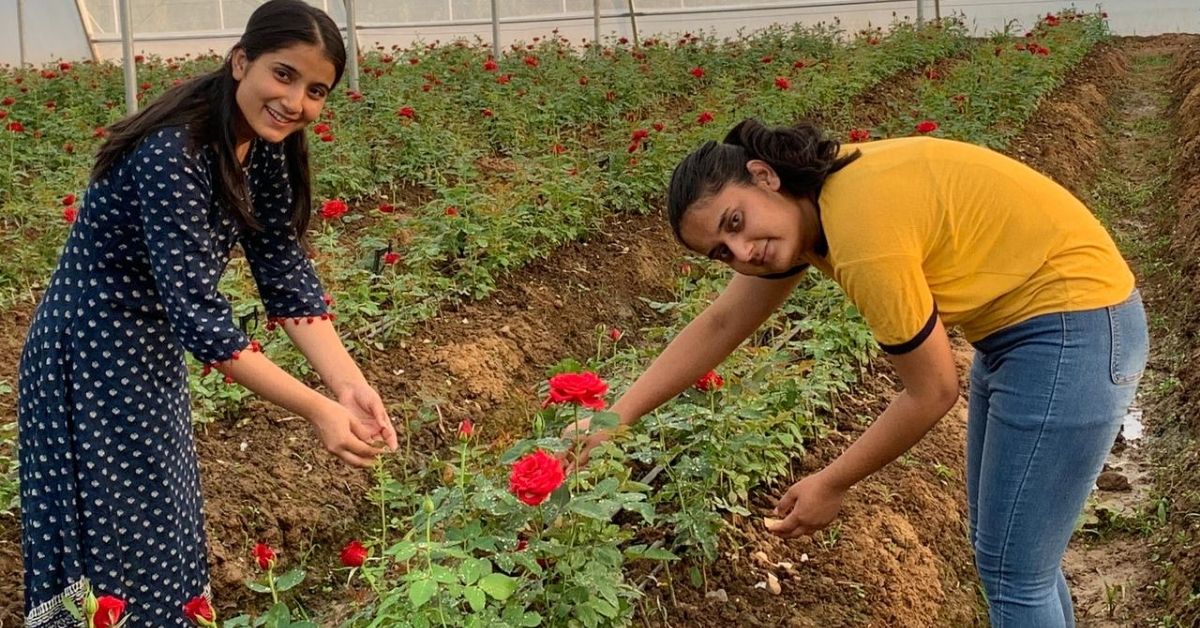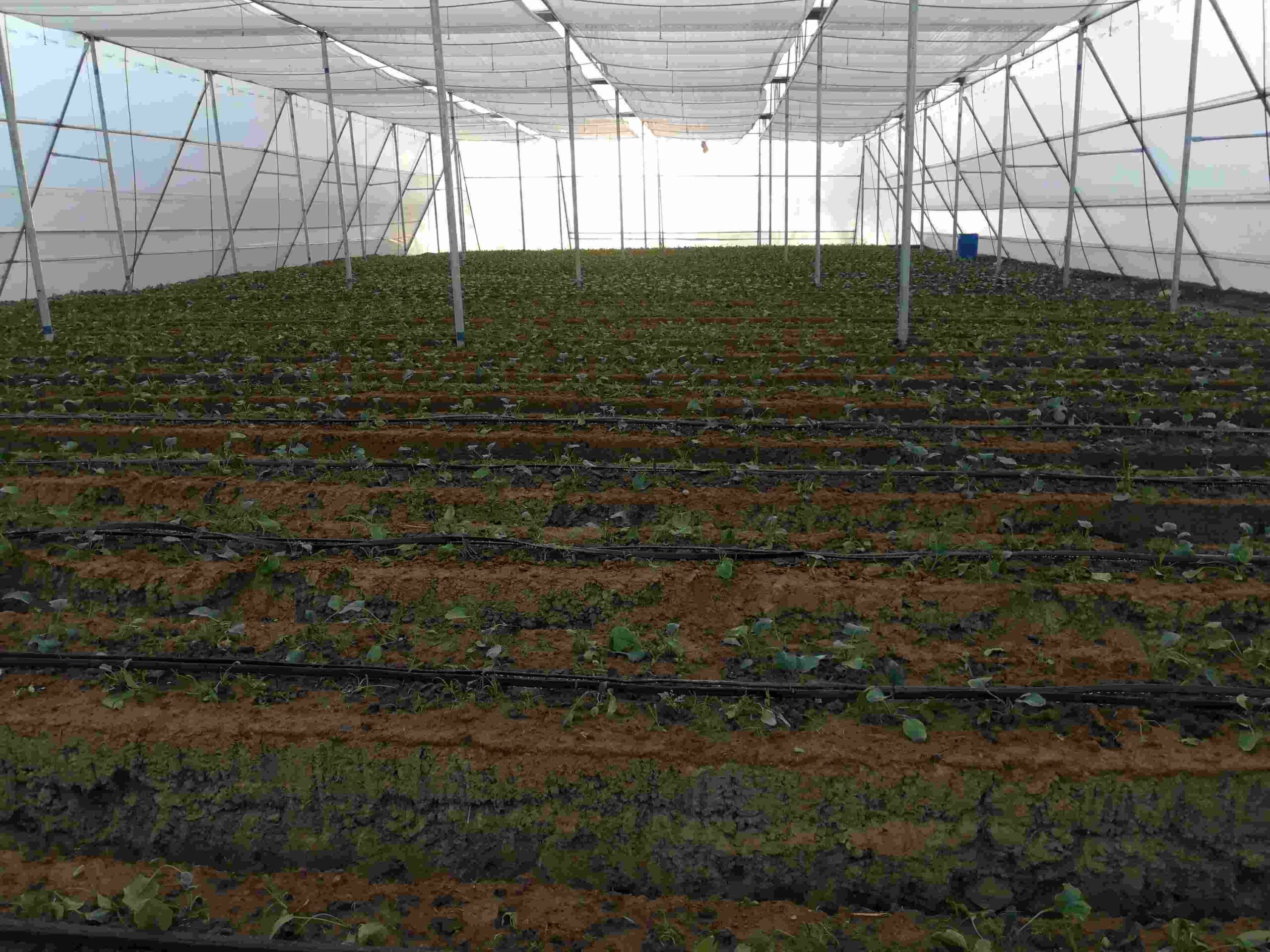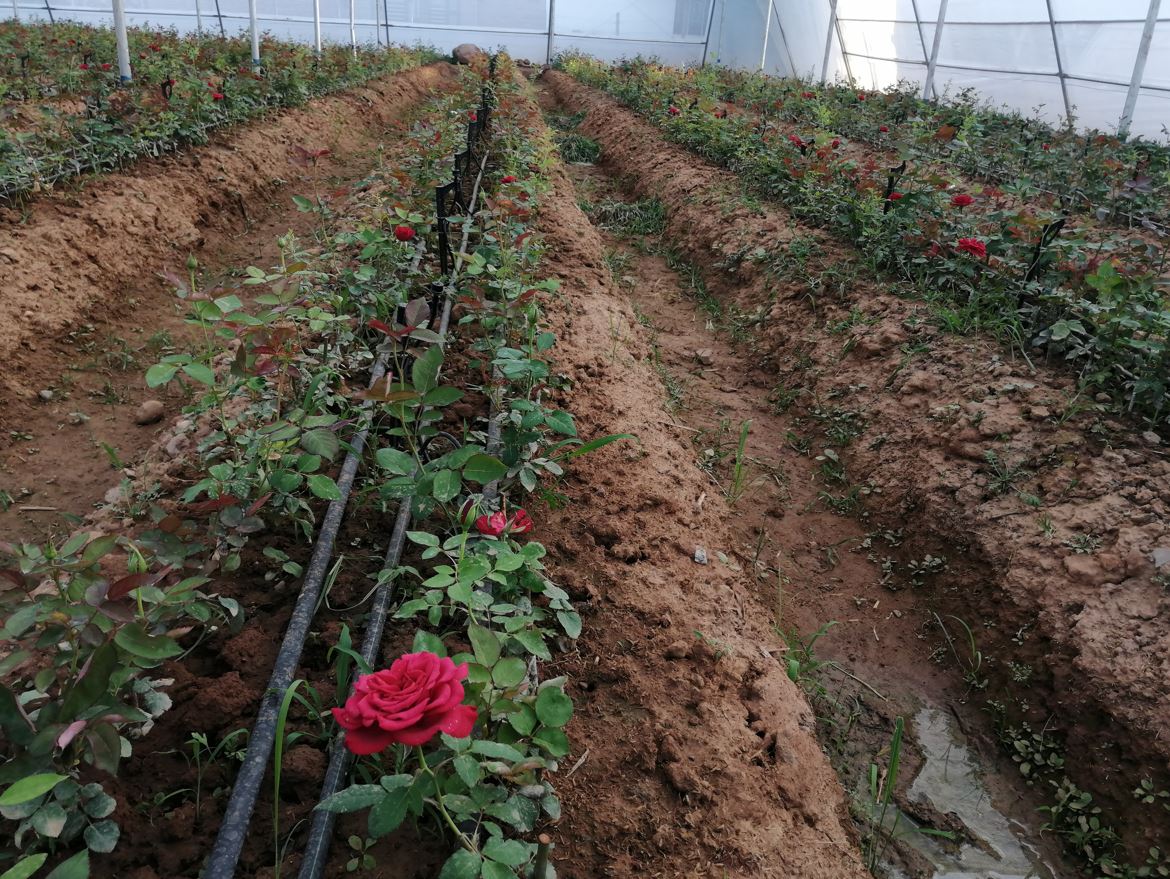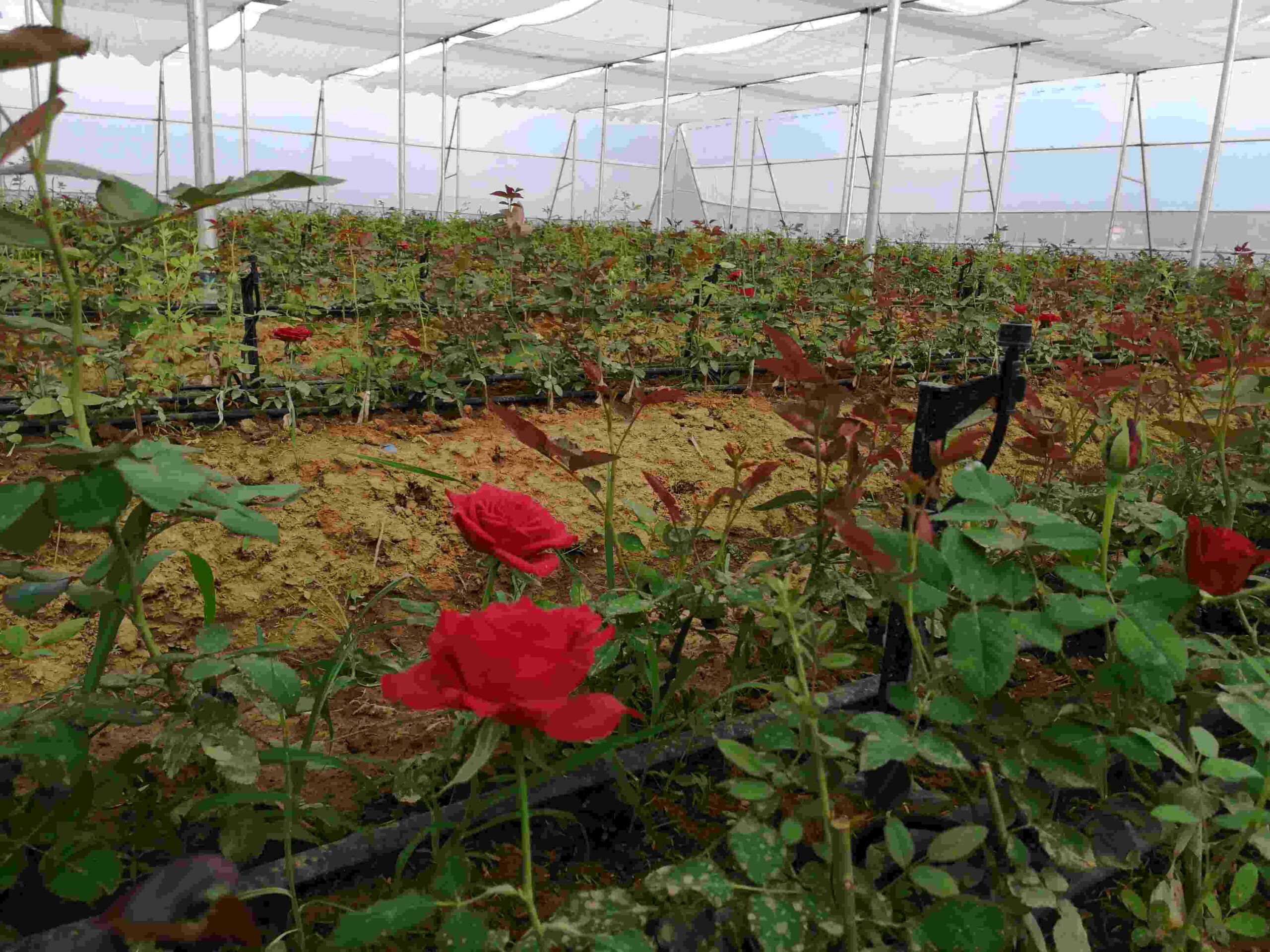Inspired by YouTube, Jammu Sisters Set Up Udhampur’s 1st ‘Cut Flower’ Polyhouse
Learning all skills from YouTube videos, Vedanti and Aheena Rajput from Udhampur district of Jammu and Kashmir set up the region's first 'cut flower' polyhouse.

Twice a year, during the Hindu festival of Navratri, the shrine of Shri Mata Vaishno Devi, nestled in the Trikuta Hills of Reasi District, and its 500 metres track around, is decorated with some 100 varieties of flowers imported from UK, Dubai, Sri Lanka, South Africa and Switzerland. The cost of these imported flowers like gladiolus, carnations, lilies, gerbera, roses, and anthurium, run in several lakhs.
Around 75 per cent cut flowers’ demand of Jammu and Kashmir is met by the import of these flowers, mostly from Bengaluru and Pune.
Two girls, as young as 18 and 20, from Jammu and Kashmir’s Udhampur District have got the town’s first cut flower polyhouse installed with the help of the State Government to meet the flower requirement of the Jammu region.
Vedanti Rajput, 18, is a Delhi University’s first year BA student, her mentor and elder sister, Aheena Rajput, 20, is doing her MBBS from Ukraine. Their proud mother, Meena Sambyal, and father, Arjun Singh Rajput, are government employees.
“When the first wave of COVID pandemic hit the country, my younger sister and I were forced to come back home. With classes going online and limited things to do at our place, we were quite stressed,” Aheena says.
“One cold February morning this year, while we were watching YouTube, we came across a post about ‘commercial cultivation of roses’. As our interest in the post grew, we watched more videos and did more research. Then we Google searched the information to understand the role of governments in aiding the people interested in growing flowers commercially,” Aheena tells The Better India.
Setting Up A Polyhouse

The Rajput siblings then decided to grow flowers provided by the Horticulture Department and also approached the Director Floriculture office Jammu in March 2021, where they were detailed about the formalities required to get a subsidy over commercial cultivation of flowers and types of cultivation suitable to the climate of Udhampur.
After applying for the subsidy, the duo was supposed to attend a capsule training programme at the Director Floriculture Office Jammu itself, but due to the spread of COVID-19, they couldn’t move out. So, they watched more YouTube videos to learn every minor detail about flower cultivation.
The sister-duo then headed to seek advice from Arjun Singh Parihar, the Assistant Floriculture Officer (AFO) Udhampur, to establish the polyhouse. For cut flower cultivation, any person willing to start a project is given 50 per cent subsidy over the total cost of the project, provided they fulfill certain documental requirements.
To avail the subsidy, the AFO Udhampur said that an aspirant has to submit the copy of land record, whether personal or leased or gifted, affidavits, estimate of the project, copies of Aadhar card and bank account.
“A departmental form filled in all respects with all the documents attached is then sent to higher authorities or DDOs [Drawing and Disbursing Officers] for sanctions. After sanctions, work has to be started by any reputed agency, which has an expertise and experience for the installation of polyhouses,” the senior Floriculture Department official says.
The AFO Udhampur adds that the Floriculture Department has borne Rs 10.4 lakh, of the estimated total cost of Rs 20.8 lakh, to build the polyhouse. The technical know-how for the installation of two polyhouses of 1008 square metres and 945 square metres was provided by Sunil Singh, the Deputy Director, Department of Floriculture, Jammu.
Vedanti and Aheena’s mother, Meena, however says that the department has only paid the subsidy for the establishment of the structure and the subsidy for the plantation is awaited.
She adds that the total cost for establishing the project, including structural cost and for growing the plants, has exceeded an amount of Rs 35 lakh.

Today, Aheena and Vedanti Rajput have got two polyhouses installed—one 1008 square metres for growing roses and another 945 square metres for growing gerbera—on leased land at Kawa village, some 3 km from the Udhampur District Headquarters.
To date, they have grown 6,000 saplings of gerbera and 10,000 saplings of roses.
They’re using a raised bed system of cultivation to grow the flowers and drip irrigation method to water the plant saplings. Water-misting system is used to control the temperature of the polyhouses. While Rosses in the polyhouses have started blooming, Gerberas have not flowered yet.
“We’re also considering establishing one more polyhouse for cultivation of marigold flowers since the demand of the flower remains high in all the seasons,” Vedanti says.
More ‘Out-of-the-Box’ Thinking

“In April this year,” Vedanti says, “Our project was visited by the Deputy Commissioner Udhampur, Indu Kanwal Chib herself. The district administrator praised us for thinking and executing something out of the box.”
“She assured us of all possible help in making our dream project a success,” Vedanti says, adding, “We’re hopeful that more youth of our age will come forward to establish similar projects to pursue as a career.”
Aheena says that there are just four to five shops dealing with the sale of cut flowers in Udhampur who only get customers mainly during the festive or marriage season.
“So, our focus area is not Udhampur district alone. We want to sell our produce in Jammu district, Katra town in Reasi district — the abode of Shri Mata Vaishno Devi, and all other eight districts of Jammu region,” she says.
Ashwani Kumar, the Area Marketing Officer (AMO), Horticulture, Planning and Marketing Department, Jammu and Kashmir Government, says that the gerbera cuts from Rajput sisters’ polyhouses are sold after three days and roses are sold after four days.
“On an average, they earn Rs 10,000 to Rs 15000 from the sale of these cut flowers after every third or fourth day. However, this amount is neither their profit nor loss since they’ve expended a huge amount on establishing the polyhouse. The transportation and labour cost is also being borne by the Rajput siblings,” he says, adding, “I’m sure, after 4-5 years, they’ll start reaping the benefits of their hard work.”
“Flower requirement remains high throughout the year in army establishments, particularly Northern Command in Udhampur district. So, that could be another option for these young girls to sell their produce,” says AFO Udhampur, Arjun Singh Parihar, who is guiding them through.
While the roses at the Rajput sisters’ polyhouses have started blooming, the duo is hopeful that by the time their Gerbera cut flowers start blooming, the markets will be abuzz with the customers again.
(Edited by Yoshita Rao)
If you found our stories insightful, informative, or even just enjoyable, we invite you to consider making a voluntary payment to support the work we do at The Better India. Your contribution helps us continue producing quality content that educates, inspires, and drives positive change.
Choose one of the payment options below for your contribution-
By paying for the stories you value, you directly contribute to sustaining our efforts focused on making a difference in the world. Together, let’s ensure that impactful stories continue to be told and shared, enriching lives and communities alike.
Thank you for your support. Here are some frequently asked questions you might find helpful to know why you are contributing?


This story made me
-
97
-
121
-
89
-
167











